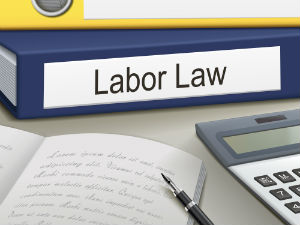- ATV accidents
- Brain Injuries
- Bus Accident
- Car Accidents
- Construction Accident
- Distracted Driving
- Drugged Driving Accident
- DUI
- Firm News
- Mass Tort
- Medical Malpractice
- Motorcycle Accidents
- Pedestrian Accidents
- Personal Injury
- Product Liability
- Safety
- Social Security Disability
- Truck Accidents
- Vehicle Accidents
- Workers Compensation
- Workplace Injuries

States have the authority to decide whether to require workers to join a labor union to get or keep a job. About half the states in the United States have passed right-to-work laws giving workers the option of whether to join a union. Labor unions are still allowed in those states, but workers cannot be compelled to join.
Right-to-work laws have been highly debated in Kentucky, which does not have a statewide right-to-work law. Some counties in Kentucky have enacted countywide right-to-work laws. However, a recent decision handed down by a federal judge invalidates Hardin County, Kentucky’s right-to-work laws, and calls into question the validity of the local laws passed by other counties. Now, county members have decided to file an appeal against that ruling.
Right-to-Work Laws Preempted by National Labor Relations Act
U.S. District Court Judge David Hale, who issued the ruling, said that local right-to-work laws allowing employees of unionized businesses to opt out of paying union dues are disallowed by the National Labor Relations Act, according to an article in Reuters. In other words, the order issued by Hale means that only the state of Kentucky– not individual counties – can enact right-to-work laws.
Hardin County leaders are expected to appeal the ruling.
The Concerns with Right-to-Work Laws
Unions typically negotiate for improvements to worker safety and health benefits and right to work law weaken their clout. Those who oppose right-to-work laws argue that right-to-work laws are associated with lower incomes and more workplace safety violations. AFL-CIO President Bill Londrigan told Reuters that, the Hardin County’s right-to-work ordinance would have affected all working people, union and non-union, by decreasing wages, lowering median household incomes, increasing poverty and undermining workplace safety.
Eldon Renaud, president of the United Auto Workers Union in Kentucky, told reporters for NPR News that a quick review of states that have right-to-work laws highlights these laws’ dangers – poor education and high poverty rates, to name two.
Others argue that right-to-work laws are a tool to recruit businesses and workers should be free to choose what they want to do with their own money, including whether to pay dues to a union.
The Connection Between Workers’ Compensation and Right-to-Work Laws
There are two primary ways that right-to-work laws could have an effect on workers’ compensation in Kentucky.
A right-to-work law makes it more difficult for unions to provide advocacy and workers’ perspectives on important policy issues, including workers’ compensation insurance benefits. The resources for negotiation and bargaining are undermined by right-to-work laws, according to The Compensation Penalty of “Right to Work” Laws, published in Economic Policy Institute.
With fewer workers’ voices being heard and less leverage for bargaining, workplace safety issues may arise. The more safety violations that occur, the more that workers are at-risk of injury, and the more the workers’ compensation system may be utilized as a result.
If you have questions about your rights to workers’ compensation insurance following a workplace injury in Kentucky, the workers’ compensation attorneys at the Frank Jenkins Law Offices can provide you with answers. To learn more, request a free case consultation using our online contact form.


